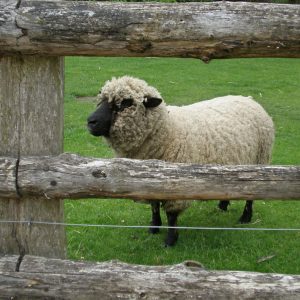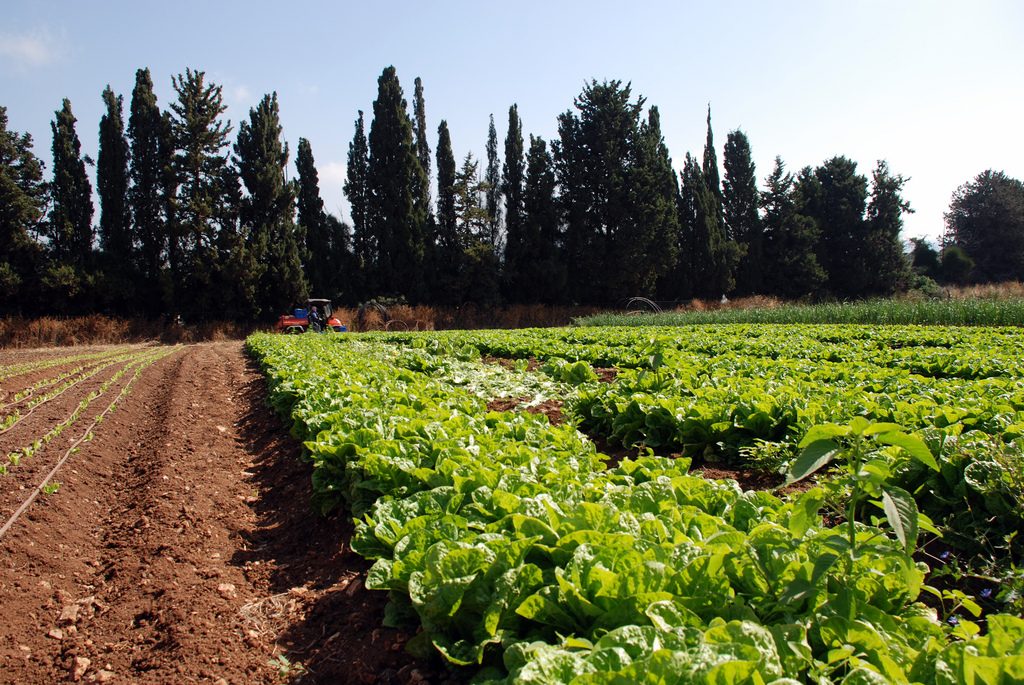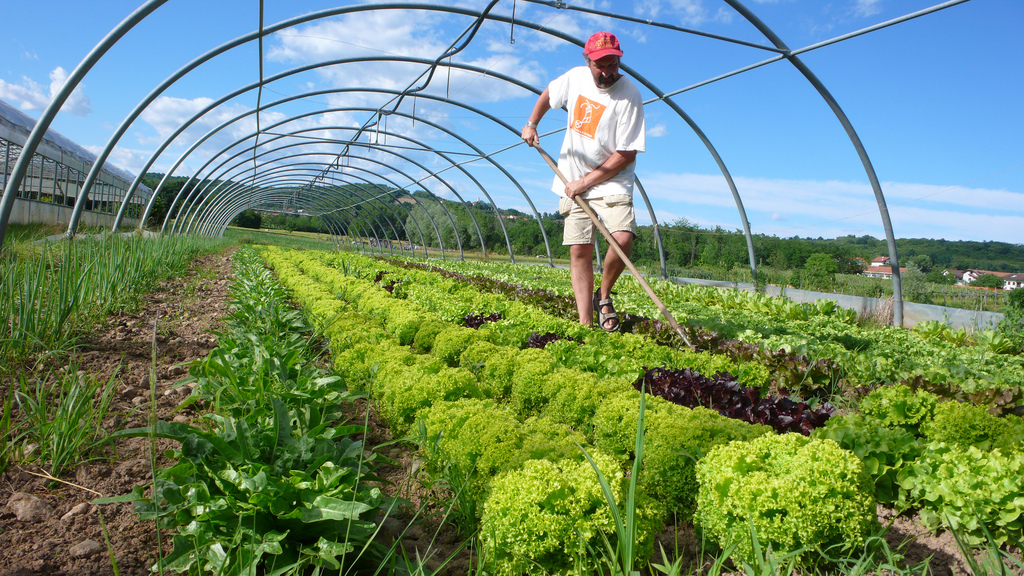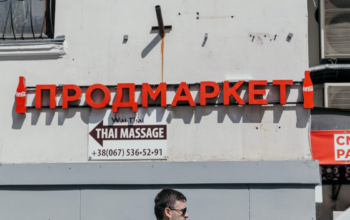We live in a time, in which climate change and environmental protection are one of the most important challenges that need to be overcome. Organic farming can be a factor that contributes positively to this aim. However, interests of private companies and counterproductive government policies increase the difficulty of making this possibility reality – the situation in France being only one example.
Vittel without Water
In Vittel, France – where more than two million bottles of water a produced daily – about thirty farmers have signed a contract with Nestlé’s subsidiary company Agrivair. These farmers are allowed to use the land agreed upon in the contract for free, provided they comply with a number of regulations that are supposed to keep the groundwater clean. So far, so good. Yet, this deal is part of a development that sees Nestlé privatising more and more water sources in the region making it impossible for anyone but the company to use them. Not only is there a plan to cut off the whole population of Vittel from local water sources and instead pump water through a pipeline from a region fifteen kilometres away into the homes of the people, but it also makes life difficult for the farmers that have signed Nestlé’s contract.
 During summer, water supplies are already low, especially with groundwater levels sinking due to Nestlé’s presence in the region. Since the company has – legally – closed wells to prevent nitrate from polluting the water, the farmers are forced to drive around for up to five hours a day to organise water for their animals. And that even though Nestlé has built a new well and thus, there would be enough water for the company as well as the farmers that help keeping the groundwater clean. One of these farmers is Benoît Gille who combines growing apples with keeping a breed of sheep that does not eat bark. That way the sheep naturally maintain and fertilise the meadow which the apple trees grow on. It could be success story of organic farming if it wasn’t for the water issue.
During summer, water supplies are already low, especially with groundwater levels sinking due to Nestlé’s presence in the region. Since the company has – legally – closed wells to prevent nitrate from polluting the water, the farmers are forced to drive around for up to five hours a day to organise water for their animals. And that even though Nestlé has built a new well and thus, there would be enough water for the company as well as the farmers that help keeping the groundwater clean. One of these farmers is Benoît Gille who combines growing apples with keeping a breed of sheep that does not eat bark. That way the sheep naturally maintain and fertilise the meadow which the apple trees grow on. It could be success story of organic farming if it wasn’t for the water issue.
Guns before Butter
Vittel, however, is not the only place in France where farmers – especially organic farmers – are facing troubles. Despite a growing awareness of and interest in organic agriculture, the French government decided to discontinue state support for organic farmers (2018). Macron has broken with France’s traditional stance on EU agricultural subsidies by accepting a reduction of these funds. The plan combines a reform of the Common Agricultural Policy (CAP) with increased spending in other sectors, especially defense which illustrates what POLITICO calls a policy of ‘guns before butter’. And despite assurances that there will not be a CAP reduction, most experts on farm policy predict a general fall in farm funding.

Macron is already facing a severe image problem due to accusations of him being ‘president of the rich’ and not of the ordinary people. His take on reforming the agricultural sector is more than unlikely to change this for the better and could offer a chance to more right-leaning politicians to win some extra points in the coming European elections. And that is beside severely harming the organic agricultural sector.
What Organic Agriculture is and what it should be
With 58% of the French people being convinced that organic farming is beneficial for environmental protection both the number of consumers and organic farmers is growing. Yet, organic agriculture only accounts for a small percentage (7.3%) of all farmed land. It is a sector that, despite gathering strength, still needs support – not to increase consumption but for technical development. The abolition of CAP funds for sustainable agriculture thus present a serious challenge to organic farming as has already become evident in the cases of the UK and the Netherlands.
In the case of the UK the land used for organic farming has been diminished by 29% within five years (2010-2015) once subsidies for the sector had been cut. With environmental protection being more urgent than ever, it is counterproductive to weaken the organic farming industry, especially when there is the necessary consumer demand that helps the sector grow until it is stable enough to function on its own. From rising food prices due to increased production costs to increased water pollution due to nitrate in fertilisers that are used in conventional farming, the reduction of support for organic agriculture has a number of negative impacts on environmental as well as social justice. Thus, as French MEP Eric Andrieu (S&D) states: ‘Organic agriculture should be the primary beneficiary of future CAP reform, but we are still far from such agricultural revolution.’
by Merle Emrich
Photo Credits
Fauno in the fields, Damanhur Spiritual EcoCommunity, CC BY-ND 2.0
Shropshire Sheep, Amanda Slater, CC BY-SA 2.0
Agriculture, StateofIsrael, CC BY 2.0










